Growing Commons

What?
Communities used to have access to land they didn’t own but that they managed together – ‘common land’. This was the way that people grew their food, firewood and building materials for hundreds, if not thousands, of years. Enclosures and changing societal and agricultural patterns led to common land shrinking dramatically over time. This project is aiming to reverse this trend and increase the amount of community managed land; seeking to explore sustainable, democratic and replicable models of commoning for the 21st Century.
Why?
Open up access to land: Land ownership is an unrealisable dream for many, but options open up when groups come together pooling their resources and skills. We are actively creating new common land and opportunities for more people to be involved in land stewardship and food growing.
Show community stewardship works: During the enclosures the idea of ‘the tragedy of the commons’ arose, that community ownership led inevitably to degraded land and outcomes, and this became a prominent justification for further enclosures. In 2009 Elinor Ostrom won the nobel prize in economics for her work showing that there are many examples of commons land management from all around the world that have successfully operated for hundreds of years. With this is mind we want to explore ideas and practices of successful commons.
Help small farmers: England has lost 30% of its farms in the last 15 years. Many farmers struggle to make ends meet, the environment, animals and farm workers suffer as market pressures push farmers to intensify and cut costs. The trend is towards megafarms and monocultures with repeated spraying of damaging pesticides and fungicides. we know that the smallest farms are the most productive and have the highest biodiversity. There are many barriers to starting small scale agriculture and making a living off the land. Growing Commons aims to make it easy to be involved in food production and support small scale growing. The project consists of interlinked initiatives that strive to build alternative food supply chains.
Who?
You! We want this project to be diverse, like our communities. Giving everyone, young and old, opportunities to participate in stewardship of land, to learn about and, if they wish, be involved in food growing & woodland management, to get close to nature and to have an equal say in decision making. You can help build the projects, grow the community, get out in the fields and woods exploring sustainable land use. There’s all kinds of activities -from hands in the soil to research, organising, community outreach, education and just having fun.
We believe research and education are crucial. The aim is to explore innovative technologies, everything from novel growing techniques that maximize soil health, to internet based participatory decision making tools. There will be lots of skill sharing and training within the projects along with outreach to share more widely what is learnt.
Read a bit about the different projects and see if anything fits. If not, write to us with a suggestion of what is missing.
The projects:

Land Commons
The other projects are not dependent on land being purchased, as it can be easily rented, or land use offered for free, but we are aiming to have land that can be held in perpetuity for community benefit to provide a stable base for longer term projects.
Set up to purchase land that will be made available for innovative sustainable land based growing projects and community use. This community benefit society is structured so that investors can withdraw their money. This allows folks to put their savings to work for a brighter future, in projects in which they can chose to be actively involved, rather than leaving it in a bank or building society.

Food Commons
A group that through gatherings, internet based discussion and decision making tools organises food growing. The focus is on growing food that stores well so it can be available to group members throughout the year.

Land Workers Co-op
A group of land workers growing on different sites and doing work including forestry, vegetable and fruit cultivation.

Contact us at –
info@growingcommons.org.uk
-
Planting staples 2025
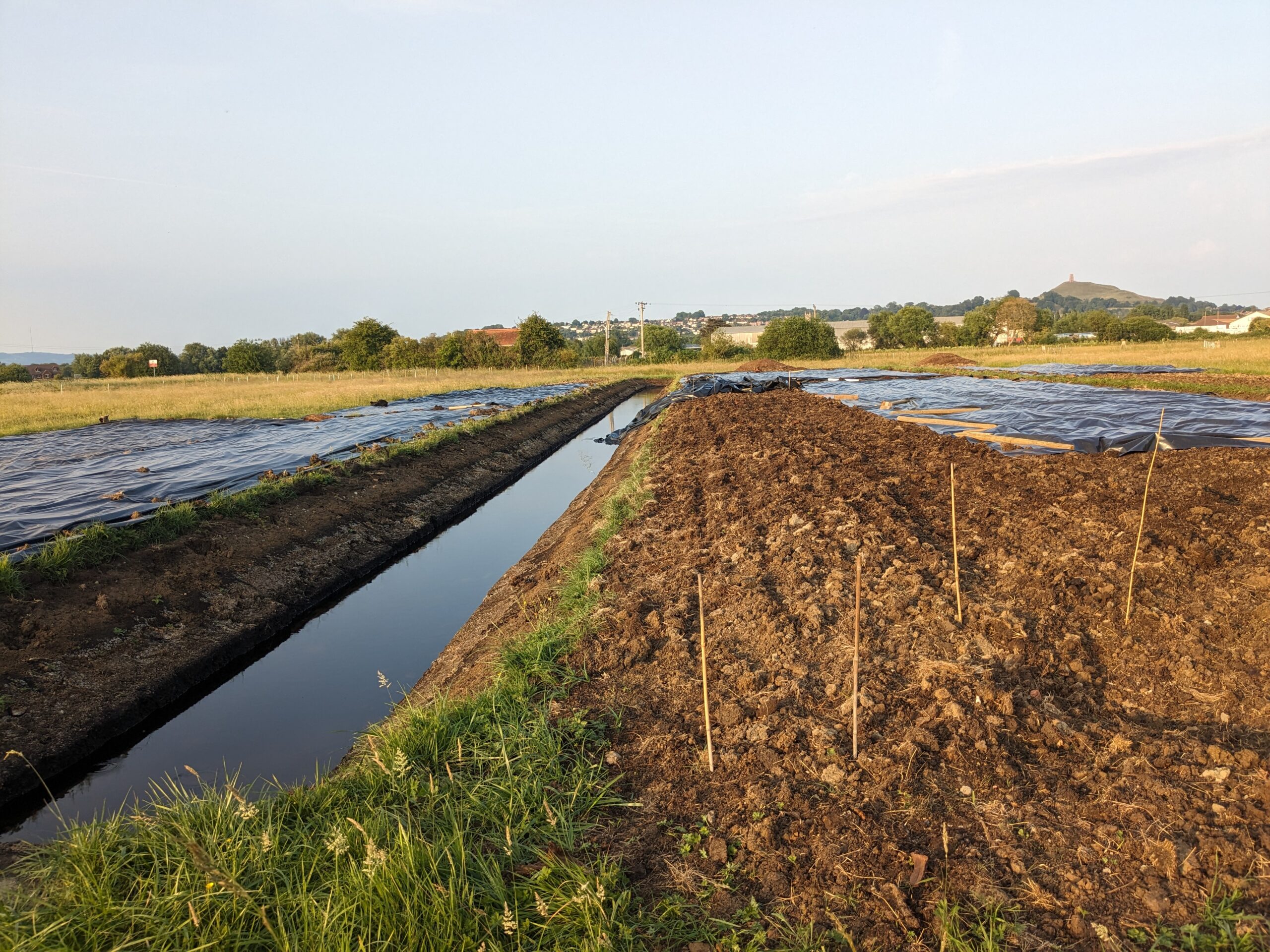
Sadly the tractor at Plotgate had serious engine problems and is out of action. We arranged to grow some rows of beans at Bridies Farm in Glastonbury. We planted 9 rows with a push seeder on the new raised beds made from soil and peat dug from new ditches. A lot different to the hard…
-
2024 staple crops
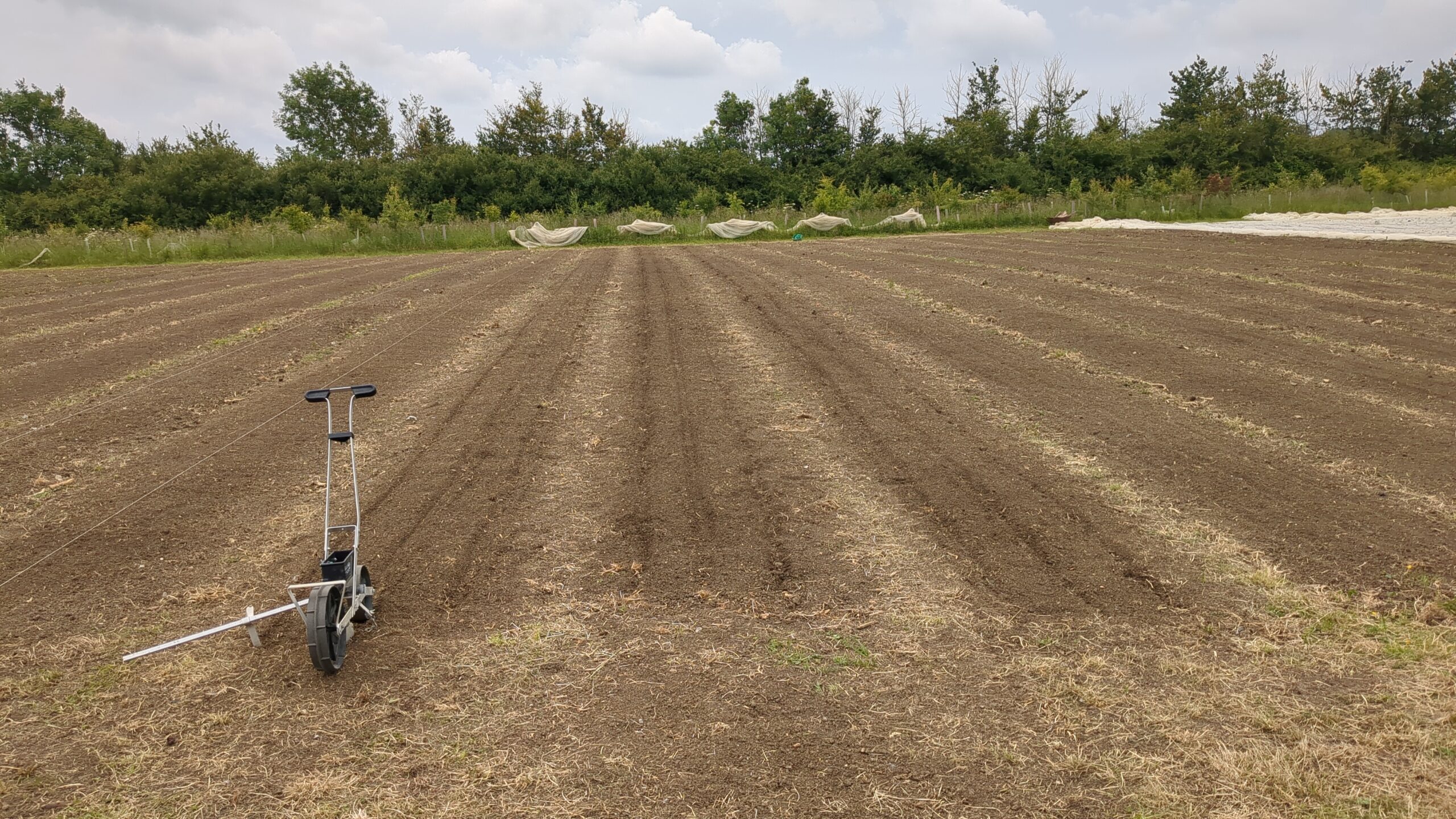
Again we planted in tractor prepared beds at Plotgate using the push seeder. This year they were 30 meter rows. We planted 3 rows each of black and white quinoa, 1 rows each of purple queen beans and soy beans and 10 rows of borlotto beans. The soy beans and black quinoa failed to show.…
-
Harvest and processing 2023
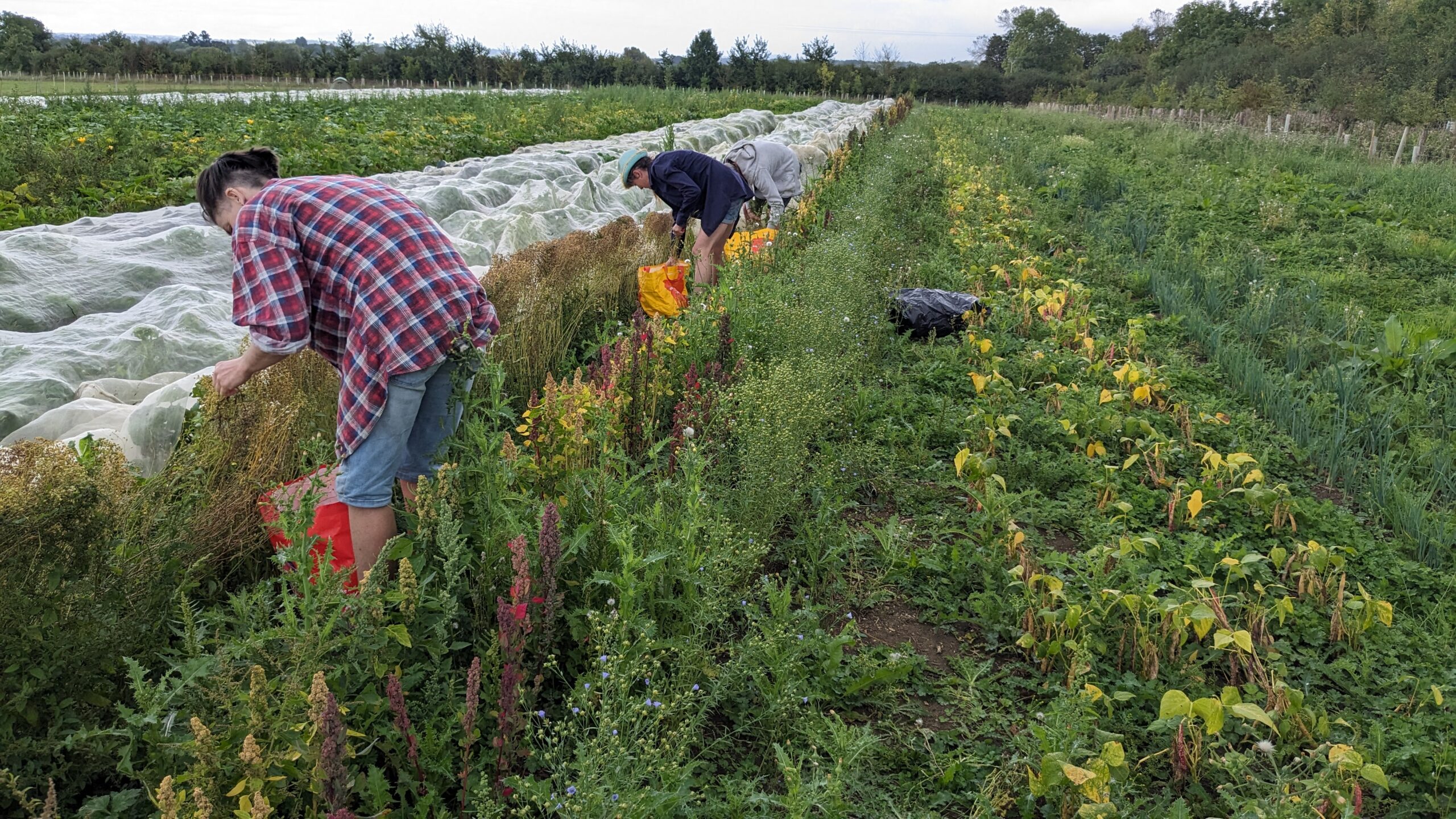
We harvested the crops by hand, for speed the whole bean plants were pulled. Seed heads were cut from all the other crops to avoid contaminating the smaller seed with soil, which would be difficult to separate out. There were so few lentil pods and the weak plants were totally swamped by the weeds which…
-
Growing staple crops
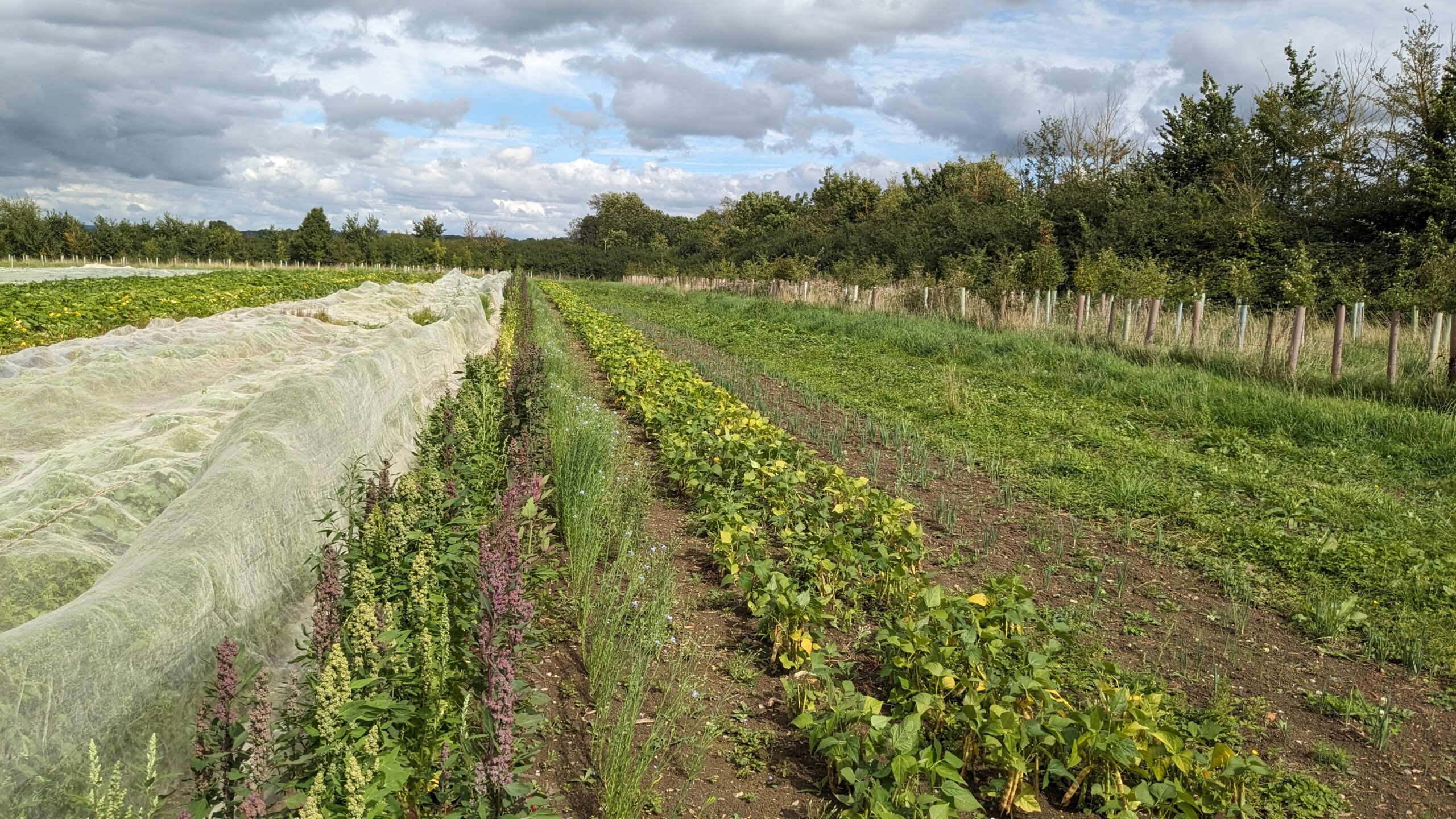
The soil of the first bed at Plotgate was ready for seeding towards the end of May so we planted out four 100 meter rows. Three quarters of their length was planted with borlotto bush beans, the last quarter with lentils. We also planted a few hundred beans in blocks as backup in case we…
-
Growing staples in 2023
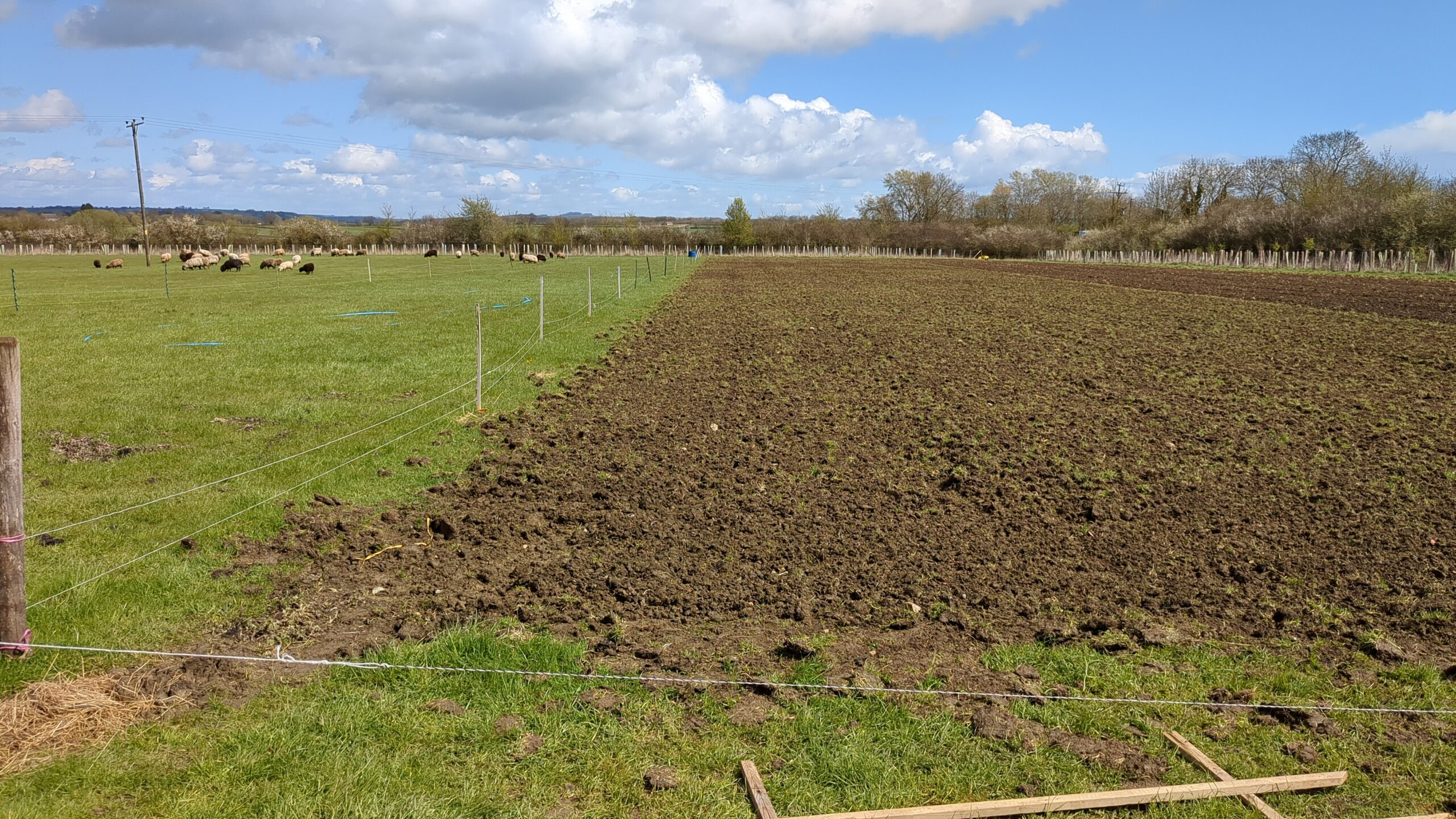
Visited Platgate Community Farm in Somerset who have agreed to collaborate with us to growing some rows of crops. Following 6 years cultivating around 3 acres of vegetable beds by hand, Plotgate started some new tractor cultivated beds last year. They grew some kale, broccoli and spring greens on part of a field that had…
-
Pumpkins are go
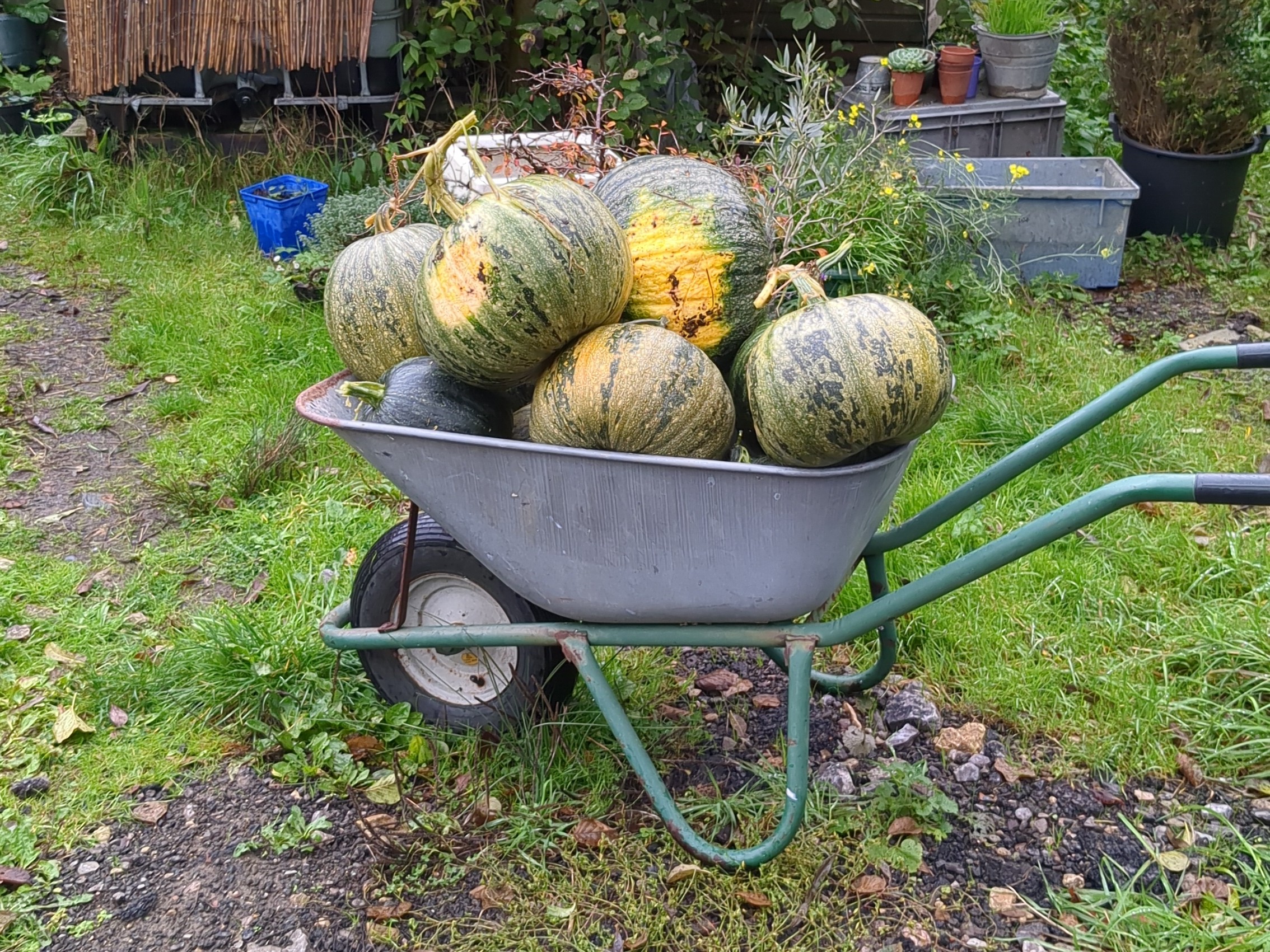
So some annuals seem to do really well on the, often wet, levels. The peat acts as a big sponge and in dry summers leveller farmers benefit. Pumpkins were sown on the 8th June and did well despite the very dry summer and only being watered in the first week. Heavy hay mulching seem to…
-
First Growing Commons site
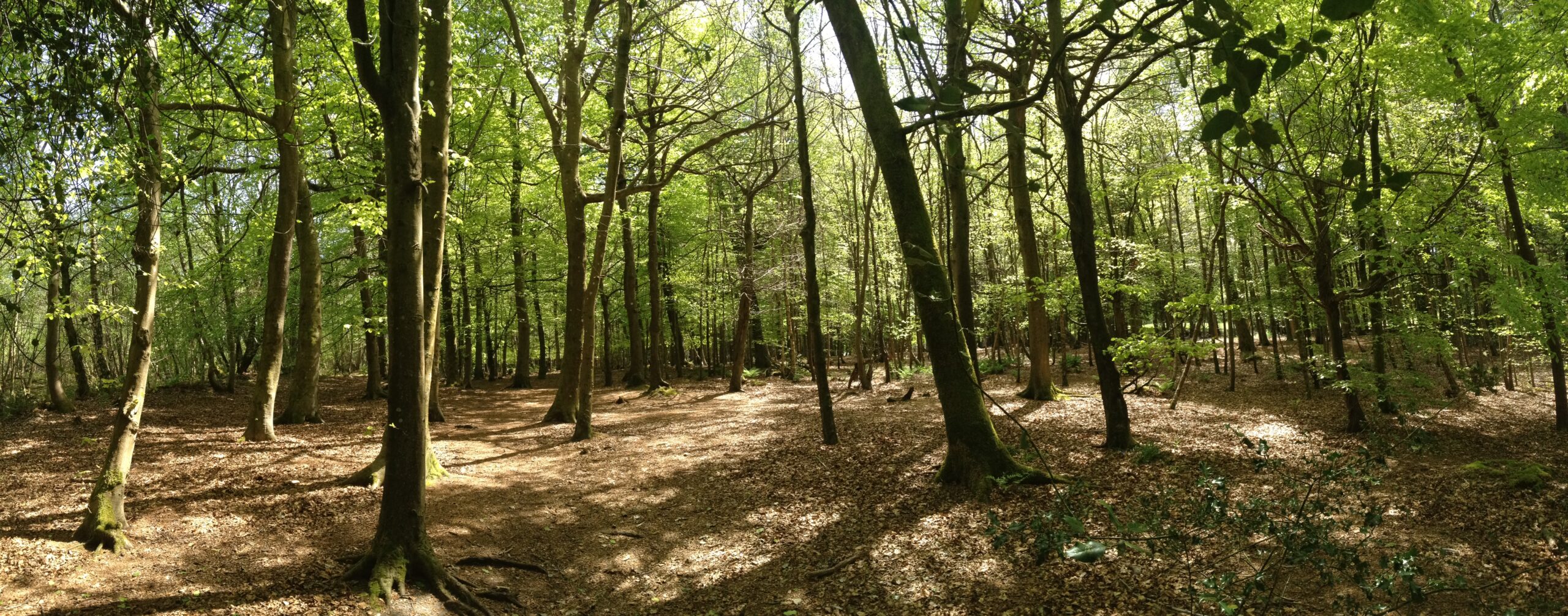
We are happy to share the news that we’ve been offered the opportunity to take on the stewardship of a beautiful piece of young woodland not far from Sparkford in Somerset. The mixed broadleaved woodland was planted twenty years ago and has grown well. The land includes a beautiful small lake to the west which…
-
Chainsaw milling
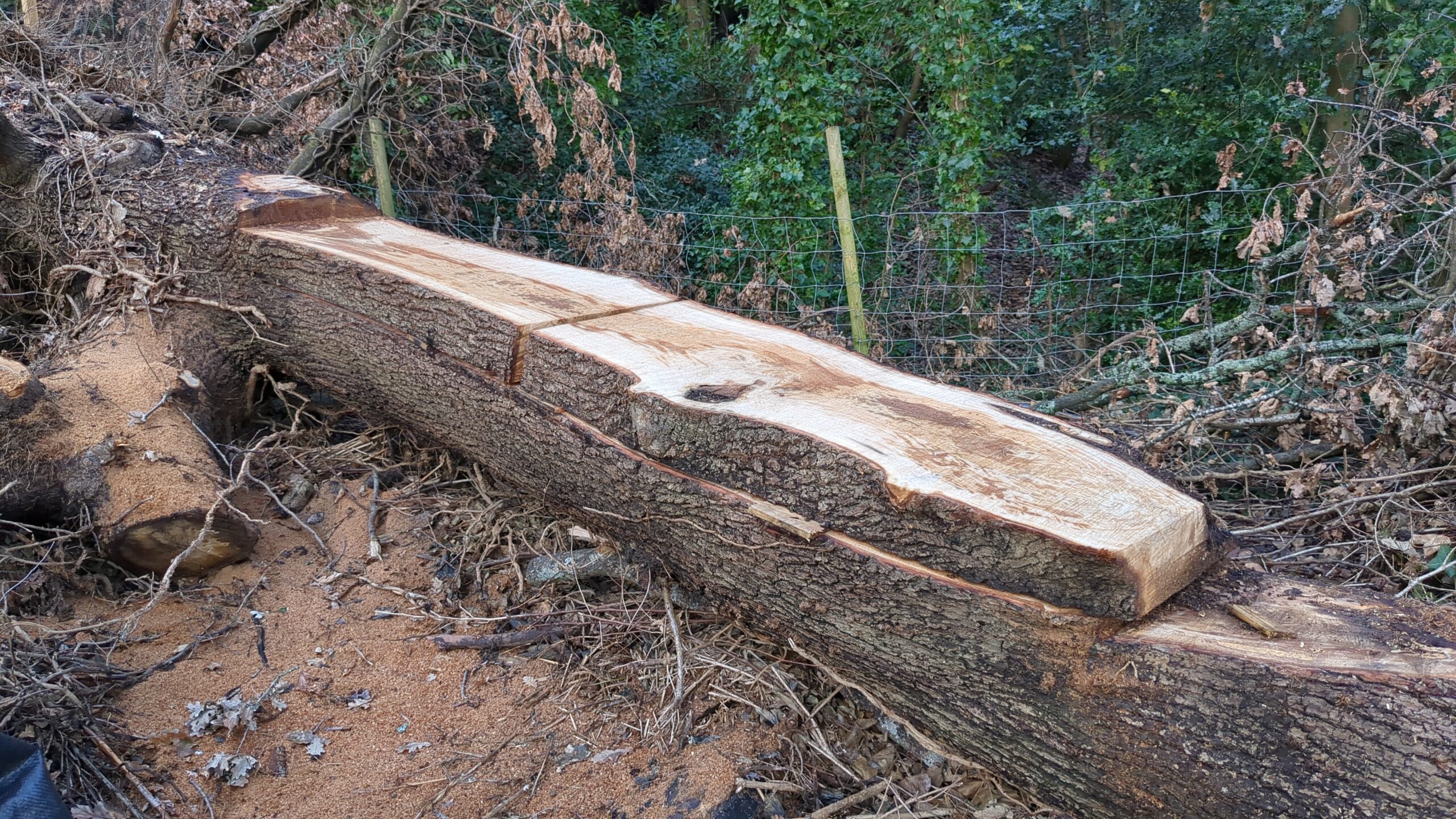
We got some work in the summer in Surrey felling a large oak tree that had sadly started moving. The roots on one side had been killed off by the traffic which squeezed past it on the skinny lane whos tarmac stretched right upto and partially around the oaks trunk. The tree had grown with…
-
2022 second year of quinoa, chickpea and lentil trials
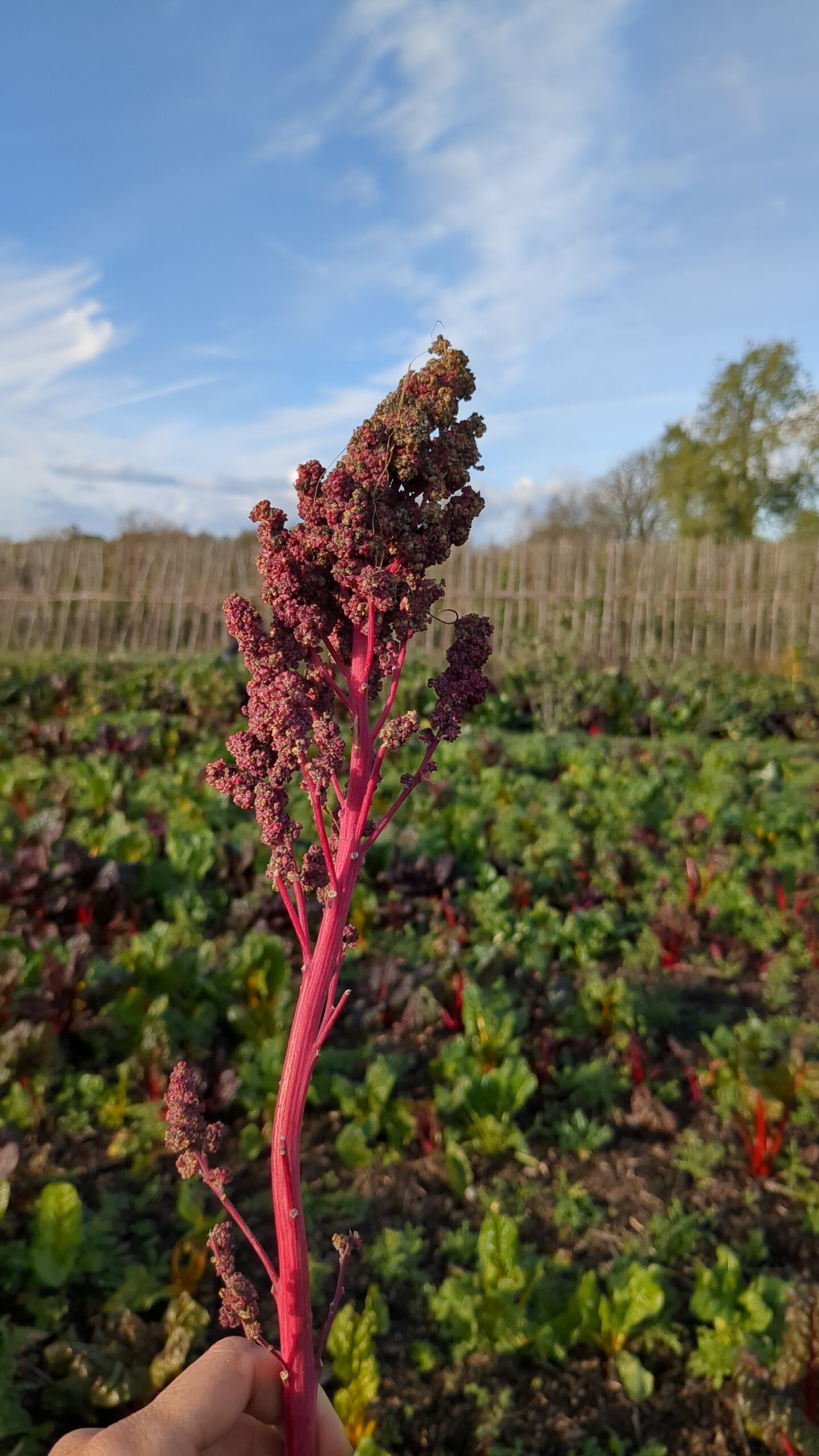
Despite a total failure in our small trial beds in 2021 we decided to have another go at growing quinoa and lentils in 2022. For 2021 we tried repeated sowings over the April and May planting season but there was very little sign of growth. Not sure if that was due to something eating the…